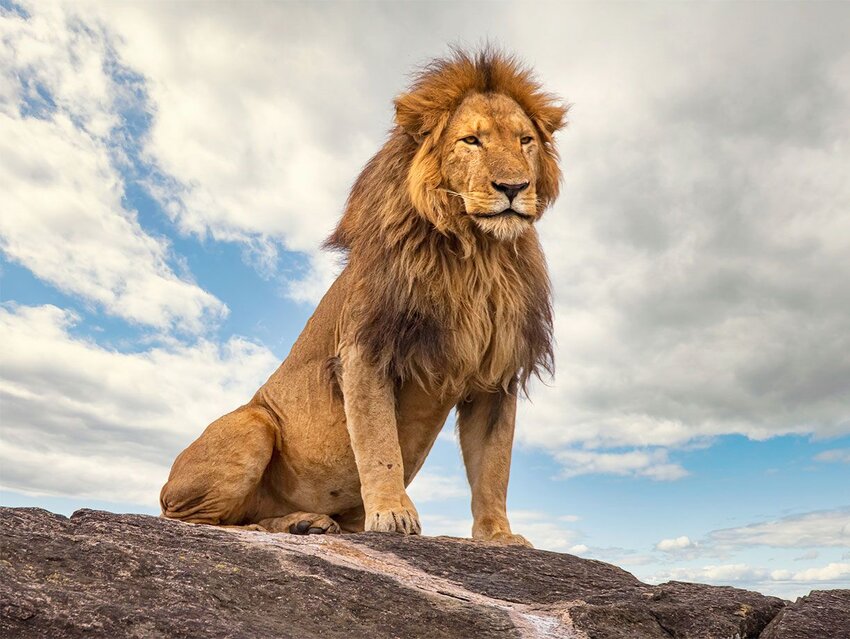Animals have inspired so much of human culture — customs, economy, religion, arts, and language — so it’s no wonder that they’ve led to human names from all over the world. Animalian names evoke certain traits, including bravery, loyalty, beauty, or strength. Names such as Raven, Colt, Buck, and Cat are some of the more obvious choices for animal-inspired names, but there are plenty of less conspicuous options, too. From Ariel to Arthur, and Tabitha to Melissa, these are some of the more surprising names inspired by animals.
Ariel: “Lion of God”
Although “Ariel” has a modern connection to the ocean thanks to Disney’s The Little Mermaid, the origins of this name have nothing to do with sea life. “Ariel” comes from Hebrew — it was an ancient name for Jerusalem in the Old Testament. It combines ari meaning “lion” with el meaning “God.”
Arnold: “Eagle”
The name “Arnold” is of ancient Germanic origin. It combines the word arn, meaning “eagle,” with wald, meaning “rule or power.” The Normans brought this name to England, where it was popular until the end of the Middle Ages. It began making a comeback in the 19th century. Famous modern eagle-like Arnolds include golfer Arnold Palmer and Arnold Schwarzenegger.
Arthur: “Bear”
“Arthur” is from Celtic origins. It combines artos “bear” and viros “man” (or possibly rigos “king”). The name became very popular in the Middle Ages, when it was used commonly among royalty (as in the legend of King Arthur). In modern times, it is more common as a last name, especially with an added syllable for “MacArthur.”
Beckett: “Beehive”
This one has been more commonly used as a surname since at least the 12th century, but it has made a comeback as a popular boy’s first name in recent years. “Beckett” comes from the Old English terms beo “bee” and cot “cottage” or “shelter.”
Callum: “Dove”
“Callum” comes from the Latin word columba, meaning “dove.” It has most commonly been used in Scotland as a variant of “Malcolm,” but “Callum” has become an increasingly popular first name in the United States.
Conan: “Wolf”
“Conan” means “little wolf” or “little hound,” from the Irish ću, which means “wolf” or “hound.” It was first seen in Irish legends, but has maintained modern relevance with the Conan the Barbarian series of books, comics, and movies and as the middle name of Arthur Conan Doyle, the author of the “Sherlock Holmes” books. (The most famous real-life contemporary Conan, of course, is Conan O’Brien.)
Everett: “Wild boar”
This Germanic name combines the roots eber “wild boar” and hard “brave, strong.” It was a popular surname for Normans and Bretons in the time after the 11th century Norman Conquest, but today, “Everett” is commonly used as a first name.
Hector: “Horse”
“Hector” is an Anglicized version of the Gaelic name “Eachann,” composed of each “horse” and donn “brown,” and it became a popular name among the nobility in medieval Germany. This name is different from the ancient Greek name “Hektor,” which came from Greek ekhein “to hold back” or “protector of the city.”
Leonard: “Lion”
Leonard, Leona, and Leo come from the Latin element leo, meaning “lion.” In the case of “Leonard,” the Norman suffix hard means “hardy, brave.” The name was popularized in medieval Europe.
Melissa: “Bee”
“Melissa” means “bee” in Greek, and it was introduced as a girl’s name in Greek legends. Melissa was the daughter of Procles (a descendant of Heracles) in Greek mythology, and it was also used as the name of many nymphs and priestesses. It has been commonly used in English as a first name since the 18th century.
Oscar: “Deer”
“Oscar” might be derived from Old Irish oss “deer” and carae “friend.” However, the etymology could also trace back to the Viking name “Osgar,” which means “god spear.”
Tabitha: “Gazelle”
In Aramaic (an ancient language from Syria), “Tabitha” means “gazelle.” It’s seen in the New Testament and became very popular as an English first name after the Protestant Reformation. In modern representations (such as the 1960s TV show Bewitched), “Tabitha” has gained a connotation as a witchy name.
Featured image credit: guenterguni/ iStock

